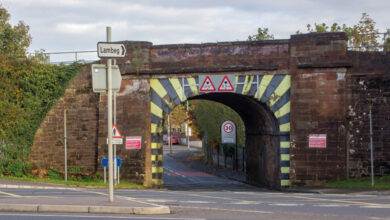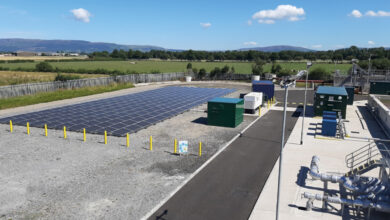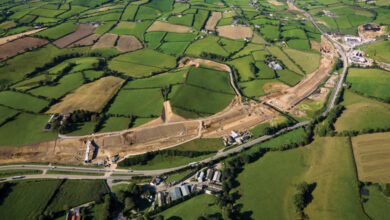Dear Chris Hazzard MLA, Infrastructure Minister,
 You have a golden opportunity to deliver on Infrastructure, which is fundamental
You have a golden opportunity to deliver on Infrastructure, which is fundamental
It delivers the things we all depend on like transport, energy and waste that are critical to our economic sustainability and growth. In short, infrastructure projects, both private and public, are how we get things done.
However, getting them ‘done’ in Northern Ireland has been a struggle.
The last Programme for Government (PfG) was light on infrastructure commitments. Presently, the framework for the next looks equally light.
A Fresh Start
In our last Assembly, the two Departments whose functions constituted the newly-formed Department for Infrastructure, DoE and DRD, were outside the control of the major parties within the Executive. This had implications on the ability to agree a shared set of infrastructure priorities and policies, and arguably contributed to our infrastructure deficit.
You now have a Department for Infrastructure with the planning powers to facilitate delivery, with a joint Executive agenda with the DUP. With more direct control over key bodies such as Transport NI, Rivers Agency and NI Water, and fewer Executive disputes over key policies or legislation – recall BMAP and the withdrawn Planning Bill – your Department will be more capable of tackling challenges.
To borrow a phrase, the new Executive mandate and consolidated Department should offer a ‘fresh start’ for infrastructure.
No Plan
The first hurdle that you must overcome is the lack of a plan or vision. There is currently no NI Infrastructure Plan which identifies priority projects or committed/planned spending. The Regional Development Strategy (RDS) doesn’t perform this function; neither does the Strategic Planning Policy Statement (SPPS). The Strategic Investment Board (SIB) was established to deliver guidance and support to Departments in project delivery, but in intervening years its resources and capabilities have been curtailed.
Currently the Department’s plan-making role is geared towards oversight, not intervention. With 11 Councils developing separate Local Development Plans, what impact might this have for region-wide infrastructure and localised strategic projects? A shaper focus on the delivery of key projects could help avoid a repetition of the delays often faced by our key projects.
A 3rd Phase of Planning Reform
The NI planning system was heavily criticised as a barrier to investment and infrastructure delivery. Early signs indicate that the new two-tier system is improving performance. Under the new planning regime you will make decisions on regionally significant planning applications.
Hearings and Public Inquiries are, however, a consistent feature with the largest proposals. Triggering this part of the planning process easily adds a year to 18 months to already lengthy timelines, yet the likelihood, or otherwise, of a Public Inquiry or Hearing on a controversial major infrastructure project is usually clear from its inception.
An obvious question is why, then, does the Planning Appeals Commission (PAC) not handle this type of higher-order planning application from the outset?
In England and Wales the proponents of a nationally significant infrastructure project (NSIP) can choose to make an application for development consent directly to the PAC’s counterparts – the Planning Inspectorate. As a parting thought Minister, perhaps now is the time to consider a third phase of similar reform – an optional NSIP process for Northern Ireland?
Yours sincerely,
Michael Gordon
Hamilton House
3 Joy Street, Belfast, BT2 8LE
Tel: 028 9072 3900
Mobile: 07766770652
Email: michael.gordon@turley.co.uk
Web: www.turley.co.uk/office/belfast





